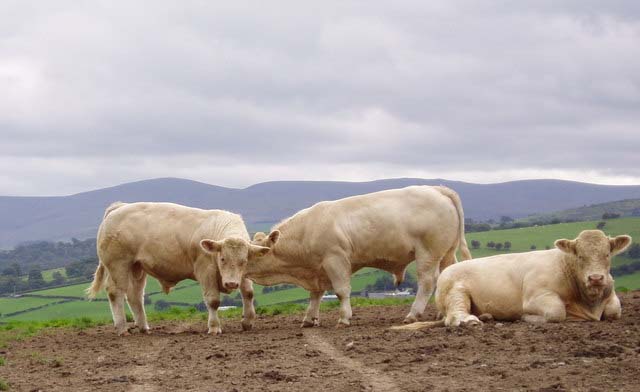
New independent research, published today, shows that eight out of ten UK consumers want to know which farm system has been used to produce their meat and dairy products.
The UK government is opposed to labelling meat and dairy products by method of production, and is pushing the European Commission to keep consumers in the dark about where their food actually comes from.
83% of UK consumers want method of production labelling, which clearly identifies the farm system used to produce the food, extended to meat and dairy products. Almost as many, 79%, said farm animal welfare was important when deciding which food products to buy.
The research was commissioned by Labelling Matters, a joint project of Compassion in World Farming, RSPCA, Soil Association and World Society for the Protection of Animals (WSPA), and is the one of the most comprehensive to have taken place on animal welfare-related food labelling in Europe. It found that the welfare of farm animals was an important factor when choosing food and that there is a strong demand by UK shoppers for mandatory method of production labelling.
Helen Browning, Chief Executive of the Soil Association, said, "Clear, honest labelling of meat and dairy produce is crucial if the European Commission is to make good on its ambition for the market to drive improvements in farm animal welfare. Method of production labelling is not about telling people what to buy – it’s about giving them a straightforward choice. The best products for welfare, including organic, are often already labelled. But until the rest are too, consumers are left to hope or assume that everything else on the shelf was produced just as humanely. Making clear the reality – for example that around 90% of chickens and pigs reared for meat in the EU are housed in intensive systems– is fairer for consumers and for those farmers working to higher welfare standards."
Julia Wrathall, Head of Farm Animals at the RSPCA, said, "Despite clear method of production labelling of eggs and new EU legislation to label fish by method of catch, consumers are still kept in the dark about the farm systems used to produce the vast majority of their meat and dairy products."
Method of production labelling has been legally required for eggs sold in the EU since 20041. Since then all eggs sold in shells have had to be labelled as ‘eggs from caged hens’, ‘barn eggs’, ‘free range’, or ‘organic’. This simple change has dramatically increased the number of eggs produced in cage-free systems. Method of catch labelling for fish was agreed by the EU in June 2013.
Julia Wrathall said, ‘It can be extremely difficult for consumers trying to buy higher welfare products. So many meat and dairy labels use misleading language and images to suggest good welfare even when the animals have been reared in standard intensive systems. As we have seen with eggs, consumers have the power to drive improvements in farm systems, but they can only do this if there is honest, comparable information on products they buy.’
In 2010 Defra carried out its own study, recording the opinions of just 96 people4. The study concluded that labelling would have a limited effect on purchasing behaviours. Unfortunately this study has been disproportionately influential – used by both Defra and the European Commission to oppose method of production labelling. These new figures highlight that consumers do want honest labelling of meat and dairy products.
Philip Lymbery, Chief Executive of Compassion in World Farming, said, "It’s astonishing that Defra and European Commission are still resisting clear, objective method of production labelling of meat and dairy products.
"Farming Minister, David Heath, has repeatedly claimed that method of production labelling is too complicated, that good welfare can be achieved even in the most barren and intensive systems, and that labelling is not a sufficiently important influence on consumer behaviour.
"The Labelling Matters research recorded the opinions of thirty-times more consumers than Defra’s study. It directly contradicts the government’s position."
The research also investigated consumer support for the specific poultry meat labelling terms, proposed by Labelling Matters: intensive indoor, extensive indoor, free range, and organic. More than three-quarters of respondents said they would use these terms.
The majority of chickens reared for meat in the UK are housed in intensive systems, which can have a detrimental effect on their welfare including lameness and heart and lung failure. With around 90% of chickens being intensively reared it can be very difficult for people to find a higher welfare option when they shop for food. These figures prove that people want honest, objective labelling of poultry meat, and of all meat and dairy products.
